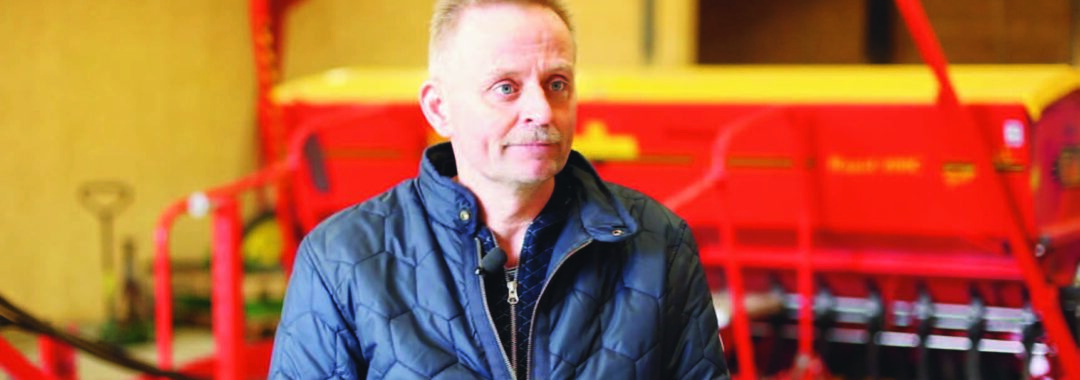Despite the fact that pig farming in Denmark has been quite constrained in recent years, there is still optimism to be found among pig farmers – at least, Anders Rahbek from Hammerum believes that there is a future for production of finishing pigs.
Pig farming has a future in Denmark, according to an optimistic Anders Rahbek; he emphasises that this was the most important reason why, in 2014, he chose to invest in a whole new housing unit for finishing pigs, with 2000 pens.
Anders Rahbek produces 7–110 kg wean-to-finish pigs, producing about 16,500 finishing pigs per year, complemented by 430 ha of fields, where he cultivates various crops. He uses his own machinery for the fieldwork and there is also room to operate a machine station.
“Before we began investing in a new housing unit for finishing pigs, we had to seriously consider what to do in the future,” Anders Rahbek explains, adding:
“The biggest challenges for us are above all the costs associated with the production of pigs.
In that regard, we had to focus on emissions of odours and ammonia from the housing unit, too. We were required to establish an air purifier to reduce the discharge by seven per cent. The costs associated with the operation of an air purification system are DKK 4–5 per pig.
That’s why we were also keen to see if we could get a derogation from the authorities to use Active NS, as it just costs less than DKK 1 per pig.
We’ve had very good experience with the product, but since we didn’t have any documentation on Active NS, we had to apply for a derogation from the authorities, which we got.
Our experience with the use of Active NS began when we had problems sluicing the slurry from the channels in some of our housing units. That’s why we opted to add Active NS to the slurry, as we’d heard that in many cases it made the slurry more homogeneous.
In connection with using Active NS, tests were carried out in the housing units, where Active NS was added to the slurry in one section, while in the other section we didn’t add it. FCSI, the manufacturer and supplier of Active NS, had the testing done to obtain evidence of the efficacy of the product.
FORCE Technology, an internationally recognised company, carried out odor and ammonia tests. Two samples were obtained independently of each other and it turned out that both samples showed an odour reduction of 37 to 38 per cent, and an ammonia reduction of 45 per cent. These results made the product even more relevant to me, not least because there are new tests in progress right now.
At the same time, FORCE Technology is working on further documentation that Active NS can make a difference when mixed into the slurry. So it will be exciting to see the end results,” Anders Rahbek comments, continuing: “In any case, we’ve seen good results, partly from easier slurry management and a better environment in the housing units. If these benefits can be transferred to other farmers, then I think we’ve made a great deal of progress in meeting both the financial and environmental requirements of agriculture.
We know that the outside world is looking at us with very critical eyes, and that environmental rules are being tightened further. So, if we can help influence the environment for the benefit of animals and people alike, we will have achieved a win–win situation for all parties,” pig farmer Anders Rahbek points out.
Watch the interview with Anders Rahbek at fcsi.dk/video.
For further information, please contact:
FCSI, tel. +45 2175 7136

